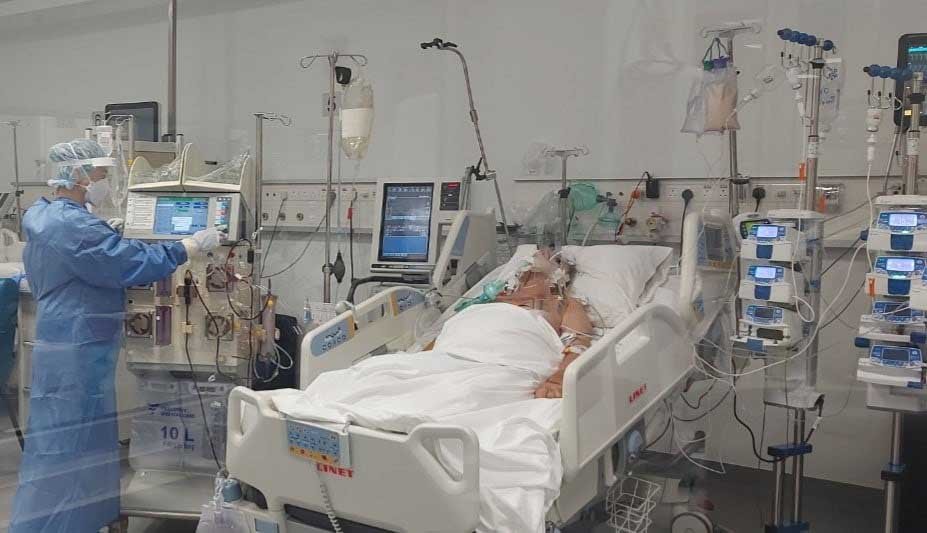Despite difficulties and under extremely unfavourable conditions, we managed to fundamentally reform the health sector
By Health Minister Constantinos Ioannou
The general health system (Gesy) which has been hailed as one of the biggest reforms ever in the Republic of Cyprus was introduced in May two years ago.
It is still early to fully assess the outcome of the deep reforms in the health sector, but there is no doubt that to a large extent Gesy meets its basic goal: to offer all beneficiaries equal and comprehensive access to quality health services.
The public have welcomed Gesy from day one despite the attacks against which still continue. Those who predicted Gesy’s collapse or kept warning of an imminent disaster have been proven wrong because the system was embraced by society and has been strengthened, consolidated and is on a path of continuous evolution.
In this constant process, social and market forces play a significant role. The role of the state – if and when deemed necessary – will only be auxiliary and of a corrective character in a bid to further support the system which is an asset for all.
The government has proved on a daily basis that it supports the health sector in which it has invested to the maximum. As an example, the health ministry’s budget is close to one billion euros constituting almost 10 per cent of the state’s overall budget.
For two years now, the public have a personal doctor of their choice, through whom they are referred to a specialist also of their choice. The large number of specialist doctors who have signed contracts with the Health Insurance Organisation (HIO) has consolidated this right to choose, and it covers the vast majority of medical specialties and almost all medical needs.
The integration of a large number of private hospitals is another milestone in the development of Gesy. In combination with the large network of Okypy public hospitals they have enriched the options on offer for all beneficiaries.
Those who doubted, whether to a lesser or greater degree, the importance of Gesy should just go back and consider what the health sector was like two years ago. With just a small contribution and without the stress of financial costs which once upset the family budget and caused uncertainty and insecurity, all beneficiaries, every family, now have access to quality health services, medicines and diagnostic and laboratory tests.
The numbers are a strong indication: over the past two years a total of 892,134 Gesy beneficiaries have joined a personal physician’s practice, and 801,107 beneficiaries have visited their personal doctor. Some 631,000 beneficiaries have visited specialist doctors, 655,868 received medication, 578,249 have undergone laboratory tests and 76,873 have received in-patient medical care service.
I recognise that the numbers also indicate an abuse of the system, an anticipated distortion recorded in all countries where such schemes were introduced. The HIO has taken various steps, and the problem has been alleviated to a great extent, but, admittedly, it is still present. However, I would like to remind you that abuses were recorded before the implementation of Gesy as well, when patients were over-charged and over-indebted while the state suffered serious losses from undeclared income, wasted money and several other ‘pathogens’.
The second anniversary of the implementation of Gesy finds our country trying to step out of the coronavirus health crisis. It would be an omission not to underline the decisive contribution Gesy made to the effective management of the pandemic. I am sure things would have been a lot more difficult without the Gesy database in our hands with its obligatory registration of all medical procedures and the valuable institution of the personal doctor.
By defining procedures and protocols, it became easier to deal with suspected and/or positive Covid-19 cases while electronic prescriptions to chronic patients who did not have to physically visit a medical centre were solid actions that decongested the health system and minimised the risk of the pandemic spreading. Equally important is the contribution of personal physicians who are now vaccinating beneficiaries.
Two years later, we are confident enough over the path we have taken. The future of Gesy appears bright, and we feel proud that despite the difficulties and, under extremely unfavourable conditions, we implemented this big reform of the health sector.
We still have to add other specialties and services, as well as take corrective actions where necessary towards further upgrading of the health system, but Gesy is an inspirational project for Cyprus, one to be inherited by our children and future generations.







Click here to change your cookie preferences